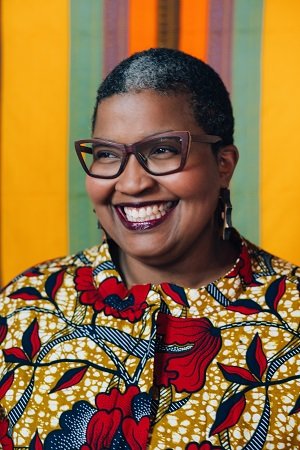On Saturday, April 27, following the 2:00 PM matinee performance of LAS BORINQUEÑAS, the powerful new drama by Nelson Diaz-Marcano, everyone is encouraged to stay for a talkback discussion about the cultural, historical, and scientific context of the play.
Set in the 1950s in Puerto Rico, LAS BORINQUEÑAS tells the stories of María, Fernanda, Yolanda, Rosa, and Chavela, all fighting to live full lives in a changing country with crushing societal rules for women. Into their lives comes the American scientist Dr. Gregory Pincus, trying to find test subjects for a clinical trial to test the safety and effectiveness of the first birth control pill, an invention that could give women everywhere freedom. This is a story about medical innovation and the women who risked everything for the chance to live. The audience will have the opportunity to ask questions and join the discussion.
Reproductive Justice advocate Alia Tejeda will moderate the discussion with historians Donna J. Drucker and Kathryn Lankford and bioethicist Inmaculada de Melo-Martín,
LAS BORINQUEÑAS is the 2024 mainstage production of the EST/Sloan Project, EST’s partnership with the Alfred P. Sloan Foundation to develop new plays “exploring the world of science and technology,” an initiative now in its twenty-fifth year.
About the Panelists
Donna J. Drucker is a historian who focuses on the history of gender and sexuality as it intersects with science and technology. She received a PhD in history from Indiana University in 2008 and has published four books: The Classification of Sex: Alfred Kinsey and the Organization of Knowledge (Pittsburgh, 2014), The Machines of Sex Research: Technology and the Politics of Identity (Springer, 2014), Contraception: A Concise History (MIT, 2020), and Fertility Technology (MIT, 2023). Her next book on the recent history of abortion worldwide is under contract with Reaktion Books. She works in research development at the Columbia University School of Nursing and tweets from @histofsex.
Kathryn Lankford is an Assistant Teaching Professor in the School of Applied Sciences and Arts at Arizona State University where she teaches history and interdisciplinary courses related to medicine, science, technology, gender, and sexuality across a variety of times and places. She previously taught at Michigan State University and served as an advisor at the University of Michigan. Kathryn earned her Ph.D. in History from Michigan State University in 2021. Her dissertation, “More than a Way Station: Ground-Level Experiences in the Field Trials of Oral Contraceptives and IUDs in Puerto Rico, 1956-1966,” examined the field trials of the first birth control pills and new intrauterine devices in Puerto Rico from the perspective of ground-level actors and the agencies affiliated with the tests. She is currently expanding and revising this research.
Inmaculada de Melo-Martín, PhD, MS is Professor of Medical Ethics in the Division of Medical Ethics, and in the Graduate School of Medical Sciences at Weill Cornell Medical College. She is also the Co-Director of the Regulatory and Ethics Knowledge and Support Core for the Clinical & Translational Science Center (CTSC) at Weill Cornell. She holds a Ph.D. in Philosophy and a M.S. in Molecular Biology. Her research interests include bioethics and philosophy of science and she has published extensively in both areas. Her work explores epistemic aspects and ethical challenges confronting the biomedical sciences. In her research, informed by feminist values, she has called attention to the importance of science when making ethical judgments, the importance of ethics when evaluating new scientific and technological developments, and the importance of attending to the social and political context when assessing science and technology. She has served on the Empire State Stem Cell Board Ethics Committee and is a Fellow of the Hastings Center. Her most recent books are Rethinking Reprogenetics (OUP, 2017), and with Kristen Intemann, The Fight Against Doubt (OUP, 2018).
About the Moderator
Alia Tejeda, a native New Yorker, serves as New York Field Organizer at the National Latina Institute for Reproductive Justice (Latina Institute), where they are building the New York activist base to raise the voices of Latina/xs in the state for reproductive justice. Alia comes to Latina Institute with years of activism experience in abortion access. Since 2015, Alia has been a lead clinic escort for multiple clinics in New York City. They have also been a dedicated case manager for New York Abortion Access Fund (NYAAF), assisting its board in training new case managers.
Alia has worked in education and youth development for over five years at Exploring the Arts (ETA). During their time at ETA, Alia partnered with over 60 different art and cultural institutions throughout New York City and created a bicoastal training series in leadership and development with social-emotional learning components. They have also received certifications from the National Council for Mental Wellbeing. Alia received their BA in Theatre and Performance with a concentration in Directing and Arts Management from the State University of New York at Purchase College.
LAS BORINQUEÑAS began previews on April 3 and runs through May 5 at EST. You can purchase tickets here.

























